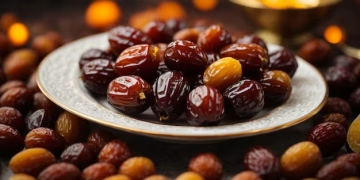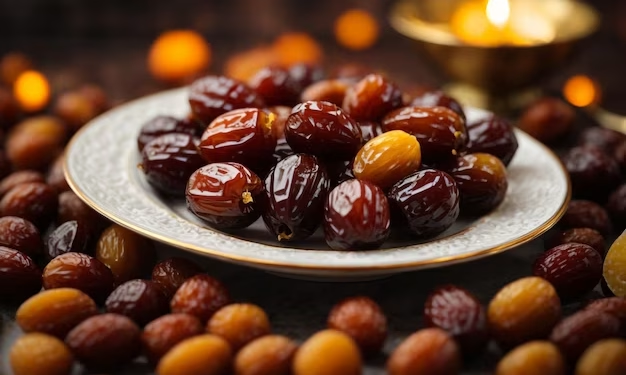In recent years, the United States has witnessed a growing appetite for exotic and healthy superfoods, and dates are quickly climbing that list. Among the varieties gaining popularity, Khalas dates—known for their rich flavor, caramel-like texture, and nutritional benefits—have become a favorite among health-conscious consumers, culinary enthusiasts, and Middle Eastern communities across the U.S.
What Are Khalas Dates?
Khalas dates, also spelled as “Khlas” or “Khallas,” originate from the Arabian Peninsula, particularly from Saudi Arabia and the UAE. The word “Khalas” literally means “quintessence” or “pure” in Arabic, and the name is fitting. These dates are medium-sized, amber to dark brown in color, and offer a perfect balance of sweetness and chewiness. They are soft but not overly sticky, making them an ideal snack or ingredient in a variety of recipes.
Unlike Medjool dates, which are larger and often more sugary, Khalas dates in USA are appreciated for their moderate sweetness and distinct toffee-like flavor. This makes them particularly appealing to those who are new to dates or seeking a more subtle taste.
Nutritional Benefits
Khalas dates are not just delicious—they’re also packed with nutrients. Here are some of the health benefits that are driving their demand in the U.S.:
- Natural energy source: Rich in natural sugars like glucose, fructose, and sucrose, Khalas dates provide an instant energy boost—perfect for athletes or anyone needing a quick pick-me-up.
- High in fiber: They support digestive health and help in maintaining regular bowel movements.
- Rich in antioxidants: Dates contain important antioxidants such as flavonoids, carotenoids, and phenolic acid, which help fight inflammation and support overall health.
- Vitamins and minerals: Khalas dates offer essential vitamins like B6, and minerals such as potassium, magnesium, and copper.
With increasing awareness about healthy eating, more Americans are turning to natural, whole foods like Khalas dates to meet their dietary needs.
Growing Popularity in the U.S
The U.S. has traditionally been dominated by Medjool and Deglet Noor dates, which are grown domestically in California’s Coachella Valley. However, the rise in Middle Eastern cuisine and a diverse immigrant population have created a demand for specialty varieties like Khalas dates.
Importers and ethnic grocery stores across the country, particularly in cities with large Arab, South Asian, and African communities, have responded by stocking premium Khalas dates from Saudi Arabia, the UAE, and Oman. Online retailers like Amazon, eBay, and specialty health food websites have also made it easy for consumers nationwide to access them.
Culinary Uses
Khalas dates are versatile in the kitchen. While many enjoy them straight out of the package as a sweet snack, they are also used in baking, smoothies, salads, and even savory dishes. Their natural sweetness and chewy texture make them an excellent substitute for refined sugar in homemade energy bars or desserts.
In traditional Arabian cuisine, Khalas dates are often served with Arabic coffee, symbolizing hospitality. That custom is being embraced in the U.S., especially among those hosting multicultural events or looking to add a touch of elegance to gatherings.
Ramadan and Festive Seasons
The demand for Khalas dates peaks during Ramadan and Eid celebrations in the U.S., where dates play a central role in breaking the fast. Their soft texture makes them easy to consume after a long day of fasting, and their nutrient content helps restore energy quickly. Non-Muslim Americans are also becoming aware of this tradition and incorporating dates into their diets during wellness cleanses or as part of plant-based meal plans.
Sustainability and Ethical Sourcing
As American consumers become more conscious of where their food comes from, many are seeking ethically sourced products. Importers and distributors are responding by partnering with sustainable farms and suppliers in the Gulf region to ensure that Khalas dates meet both quality and ethical standards.
Some U.S.-based companies are even exploring the possibility of cultivating Khalas varieties domestically, using techniques adapted for California’s desert climate. While still in early stages, this could open new opportunities for local production and reduce reliance on imports.
Conclusion
Khalas dates are more than just a snack—they represent a bridge between cultures, a superfood packed with health benefits, and a gourmet addition to American diets. As awareness grows and accessibility increases, it’s likely that Khalas dates will continue to find a cherished place in pantries across the U.S., not just among Middle Eastern communities but among all who seek wholesome, naturally sweet, and versatile foods.























































